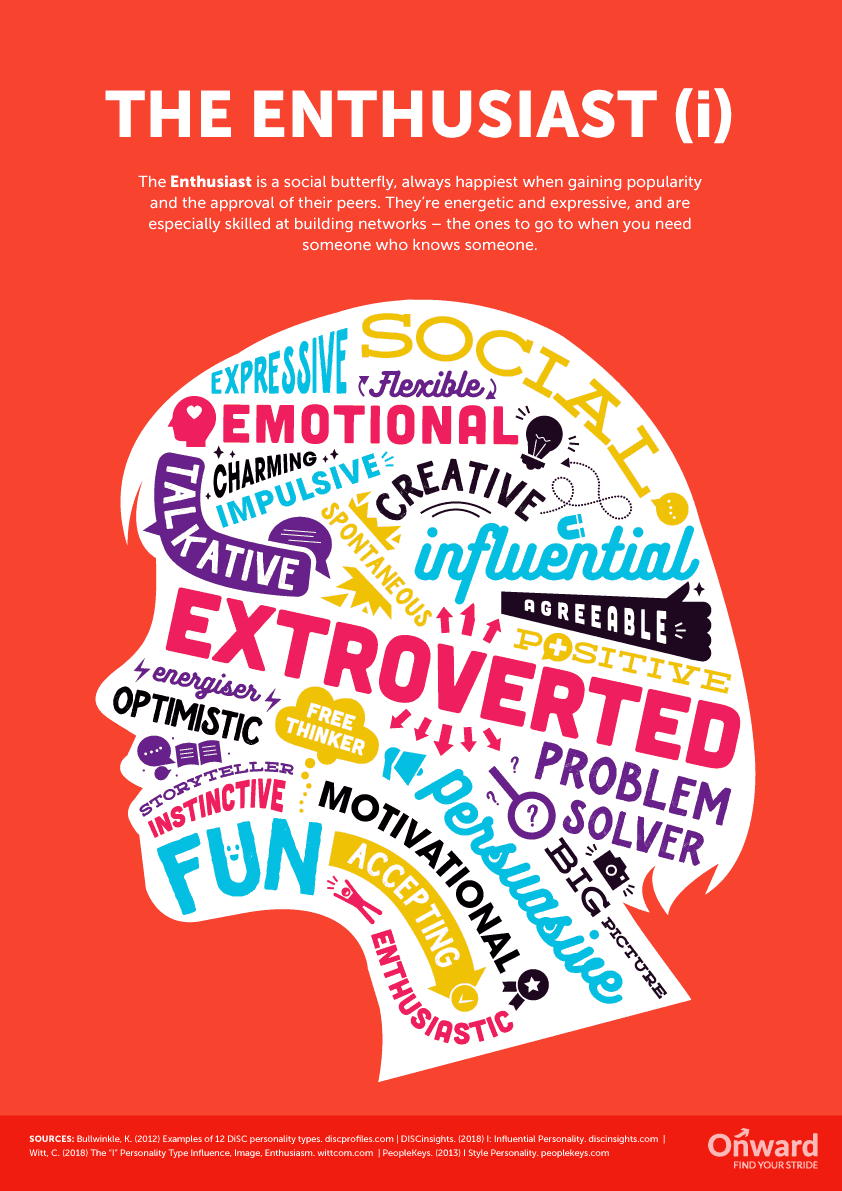

their preference of one of the two functions of perception: Sensing (S) vs. The group was composed of a half-dozen blind unemployed guys from San Francisco where the original research was done. A person who is very competitive, impatient, hostile, or just stressed is often said to have a type A personality. Personality Type Explained Extraverted (E) vs. This group was found to have no concern at all about time or stress. Personality types are sometimes distinguished from personality traits, with the latter embodying a smaller grouping of behavioral tendencies. If they were not highly stressed or seemingly didn't care much about time they were considered Type B.įinally, according to Gleick, while popular media, management theory speakers,Īnd stress management gurus picked up on the Type A and Typeī categories in the original research, they neglected to mention a third group, the Type C personality. In psychology, personality type refers to the psychological classification of different types of individuals. The people who were found to be Type B were mainly people who were not like Type A. Also, the Type B personalities were never clearly defined either. If they smoked, checked their watch numerous times during the interview, or were in a high stress job, they were chosen for the test, thereby skewing the findings. Gleick tells how the research was flawed without a real control group and the candidates were chosen from people who already fit the profile. In the book Faster: The Acceleration of Just About Everything, author James Gleick reveals some interesting facts about the original research that produced the Type A categorization. There is also a Type T personality (risk taking behavior), and the Myers-Briggs Type Indicator, for those who want more detail and finesse. People also refer to this personality as The Achiever or The Director because they make excellent leaders, entrepreneurs, and politicians. Since obviously there are many people who don't fit neatly and obviously into either category, some people speak of a Type AB personality. Type A personalities are strong-willed, fast-moving, dominant, and often workaholics.


Type A personalities are often contrasted to Type B personalities, people who are relaxed and easy-going. Many modern psychologists consider the type A/B classification to be outdated and not particularly useful. This is likely caused by the feelings of hostility and stress found in many type A personalities, and not something that will be a problem to 'happy' type A's. People with this personality type are more likely than others to have problems with hypertension and heart disease. It is often hypothesized that type A's have low self-esteem, but since most Americans have low self-esteem, we should be careful not to confuse correlation with causation. These people are often also highly organized workaholics, who may be very successful at their jobs, but the traits that most identify type A personalities are high stress levels, impatience, and often hostility. A person who is very competitive, impatient, hostile, or just stressed is often said to have a type A personality.


 0 kommentar(er)
0 kommentar(er)
